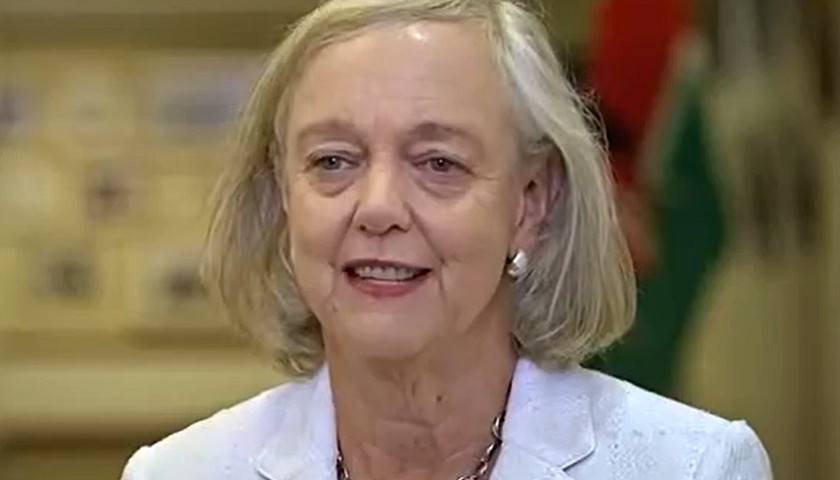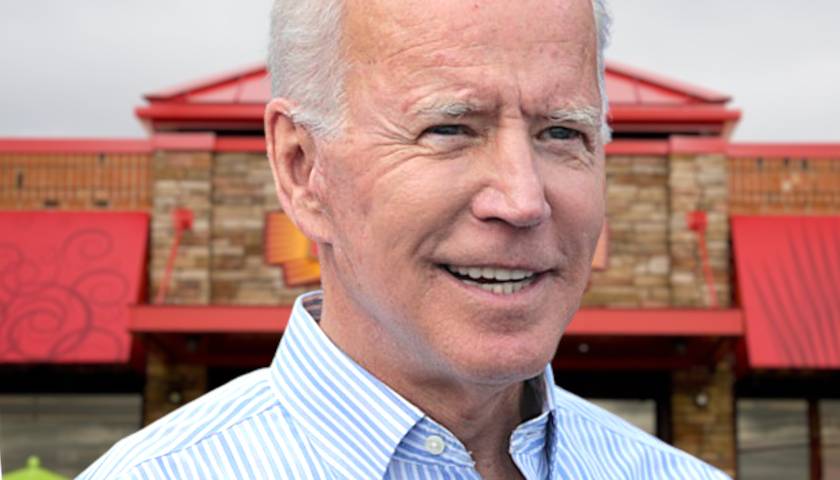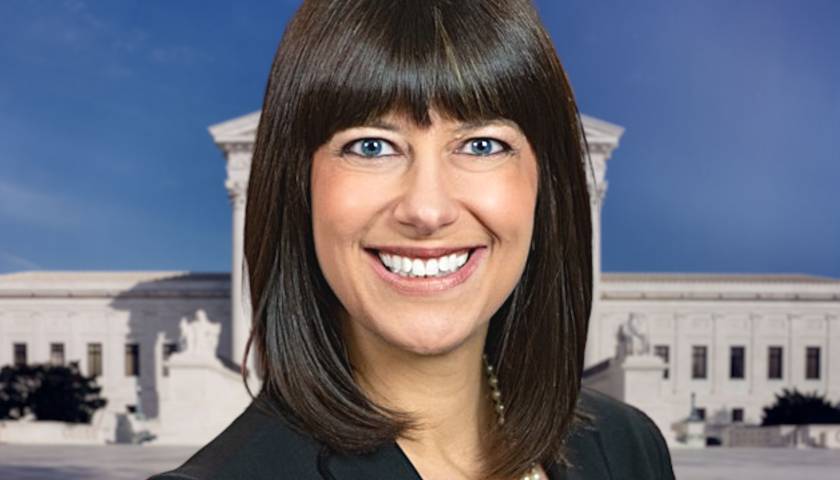by Grace Melton and Emilie Kao
On Dec. 10, the United Nations will celebrate the 75th anniversary of the Universal Declaration of Human Rights, a document drafted in the aftermath of World War II under the leadership of American first lady Eleanor Roosevelt.
Much has changed since then, including the world body’s understanding of children and of parental rights.
The original draft was the work of a diverse team of diplomats—contributors were communist, Confucian, Muslim, Jewish, and Christian. The war had devastated families around the world. To rebuild healthy societies, world leaders recognized the need for strong, intact families.
The U.N. General Assembly enshrined protections for children, parents, and families into three main texts collectively known as the International Bill of Human Rights. The Universal Declaration of Human Rights recognized the right to “found a family” and describes the family as “the natural and fundamental group unit of society, entitled to protection by society and the State.” It recognizes parents’ “prior right” to choose the education of their children.
The U.N.’s International Covenant on Civil and Political Rights (ICCPR) and its International Covenant on Economic, Social, and Cultural Rights (ICESCR) gave legal force to parental rights. All three documents recognize that children fare best when their mothers and fathers are free to raise them according to their religious and moral convictions.
The role of the state, then, is to protect families and support parents as they raise their children.
Convention on the Rights of the Child
In 1989, the U.N. General Assembly adopted the Convention on the Rights of the Child, which recognizes the unique importance of parents. This document refers to the child’s right “to know and be cared for” by parents and “to receive appropriate direction and guidance from his or her parents.”
Parents are acknowledged to “have the primary responsibility for the upbringing and development of the child.” This is because the child’s best interests are the parents’ basic concern.
State parties to the Convention on the Rights of the Child commit to “respect the rights and duties of parents.” Government respect for the rights and duties of parents is in complete harmony with the rights of children.
A preamble acknowledges that the child’s “physical and mental immaturity” requires special safeguards, including appropriate legal protection. Children lack competence to make some decisions and need a responsible adult to do so on their behalf.
The primary question is: Which adult? As Catholic University Professor Melissa Moschella explains, the answer turns on whether children belong to the state or to their families.
The texts of these foundational U.N. documents point to the family. Under the influence of far-left activists, however, the U.N. bureaucracy for decades pointed to the state. This view of the child diminishes the role of parents, puts children at greater risk of harm, and threatens the integrity of families.
Gender Dysphoria and Gender Ideology
There are many examples, but this threat is no more obvious than with the recent incursions of gender ideology in various U.N. bureaucracies—where it now enjoys almost credal status.
Gender ideology is a serious threat to families, parental rights, and children’s well-being. It is, in essence, a form of critical theory that subordinates biological sex—male or female—to a person’s supposed “gender identity” or “internal sense of gender.”
This radical ideology often is confused with a psychological disorder now called gender dysphoria. As our Heritage Foundation colleague Jay Richards explains, “gender ideology is the source of the belief that children can be born in the wrong body. It leads [people] to think that if a young girl feels anguish over her body, the doctors should not help her adjust to her body but should change her body and her surroundings … to conform to her ‘gender identity.’”
Gender dysphoria, on the other hand, is a serious mental disorder that causes deep distress with one’s sexed body.
Recent years have seen massive increases in the number of minors diagnosed with gender dysphoria in Europe and North America, almost surely influenced by the spread of gender ideology through media, education, and culture.
Until recently, gender dysphoria occurred mostly in adult males. Now, it is skyrocketing among girls with little prior evidence of gender distress, with an increase of 4,400% over 10 years in the U.K. Researchers surmise that this trend reflects a social contagion and they have come to refer to this phenomenon as rapid-onset gender dysphoria, or ROGD.
Accompanying this increase in gender dysphoria has been the spread of a poorly vetted medical protocol that seeks to modify, through drugs and surgery, a distressed child’s body to conform to his or her declared “gender identity.”
Until recently, gender activists’ protocol was a hypothesis based on a poorly designed and very limited study. But through the advocacy of associations such as the World Professional Association for Transgender Health, experimental procedures are treated as preferred interventions for many if not most children suffering from gender dysphoria.
The Medical Evidence: WPATH Agenda vs. European Experience
But this advocacy has an evidential problem. After initially endorsing this protocol, medical authorities in the U.K., Sweden, and Finland conducted systematic reviews of the evidence.
These medical authorities determined that evidence for the benefits for children of medical transitions through puberty blockers, cross-sex hormones, and surgeries is of poor quality and certainly doesn’t outweigh the known risks. These countries are now pursuing a much more cautious approach.
Indeed, strong evidence indicates that “gender affirming care” doesn’t relieve psychological distress over the long term. Moreover, the reviews document serious bodily harm, including diminished bone density and cardiovascular health as well as infertility and sterility. Many of these children also have pre-existing mental health issues that a rush to medical transition can overlook or even exacerbate.
For the vast majority of children, the process of going through puberty coincides with them becoming comfortable with their sex if they don’t undergo social or medical interventions. And contrary to the claims of transgender advocates, medical transition doesn’t reduce the likelihood of suicide. The reverse may be true.
A study that followed adults in Sweden for 10 to 15 years after surgical transition found that these adults were 19 times more likely to die by suicide than their comparable peers.
All three European countries now recommend only noninvasive psychotherapy and counseling in almost all cases for children who suffer from gender dysphoria or claim to have a gender identity that is different from the child’s sex.
World Health Organization
Despite the evidence from Europe, the World Health Organization, an agency of the United Nations, has adopted a standard of care for children based on gender ideology.
After lobbying from gender ideologues, the WHO in 2019 changed the classification of gender dysphoria in the International Classification of Diseases (ICD-11) from a mental disorder to a condition related to sexual health. The organization also changed “transsexualism” to “gender incongruence.”
The World Health Organization now promotes a standard of care for gender dysphoria that includes the use of hormones and surgeries to change the body’s cosmetic appearance. This is the same standard promoted by the World Professional Association for Transgender Health, a powerful advocacy organization. Members of WPATH and similar advocacy groups are leading development of WHO guidelines.
The World Health Organization has sidelined medical experts who question WPATH’s recommendations, as well as detransitioners and parents who seek noninvasive therapies for their children.
The standard of care for any illness or disorder determines legal liability for a medical professional, what treatments medical providers can offer, and what health insurance can cover. So, the World Health Organization’s adoption of this politicized standard directly influences global health care funding. It also influences the U.N.’s treatment of children’s health and parental rights—for the worse.
U.N. Bureaucracy
Although member countries aren’t legally bound to follow the guidance of the United Nations’ bureaucracy, its recommendations are highly influential.
U.N. treaty bodies are committees of experts that monitor implementation of human rights treaties. The U.N. Human Rights Council appoints “special procedures,” independent experts who issue opinions on human rights issues. They sometimes act as if they’re pronouncing what the law is, but the truth is that their recommendations are nonbinding “soft law.”
Advocates simply try to influence the behavior of governments by citing the recommendations over and over again, in the hope that they will become “hard law.”
Pitting Children Against Parents
Despite the defense of parents’ rights to oversee the care and education of their children in official U.N. treaties, U.N. agencies routinely work to undermine these commitments.
The U.N. Committee on the Rights of the Child, for instance, is the treaty body that monitors implementation of the Convention on the Rights of the Child. The committee claims that children’s rights to health and privacy justify excluding their parents from medical decision-making.
In 2017, the committee called upon governments to adopt the World Health Organization’s standard of care for gender dysphoria in children, framing it as being in the “best interests of the child.” Its statement warned that children who identify as transgender may be “stigmatized” and at risk of “psychological violence” from their own families.
No child should be subjected to any form of violence from a family member. However, the Committee on the Rights of the Child frames mere disagreement with the WHO as rejection or abuse.
The U.N. experts also call upon governments to reject counseling to help a child become comfortable with his or her body, adopting gender ideologues’ pejorative term “conversion therapy.” Talking with a child about the reality of their bodies and allowing them to ask questions of a therapist shouldn’t be banned, particularly because evidence shows this interaction produces long-term psychological benefits. Such counseling censorship laws violate a child’s right to access information.
By adopting the WHO’s recommendations and urging states to promote medical transition and to censor counseling, the committee is pitting children and parents against each other.
This is already happening. In the United States and Canada, parents who have opposed the medical transition of their daughters have been punished. In Canada, a judge imprisoned a father who refused to refer to his 16-year old daughter by a male name and opposed giving her testosterone. And in Ohio, parents lost custody of their daughter after a judge decided that medical transition was in her “best interest.”
These are some of the consequences of politicizing medicine and the “best interests of the child” standard.
The Committee on the Rights of the Child also has used children’s rights to justify excluding parents from decision-making about children’s mental and physical health. The committee’s 2013 General Comment on the child’s right to health cited the Convention on the Rights of the Child for the proposition that children should have access to counseling and advice without parental consent.
The committee encouraged states to allow children, without the permission of a parent. to consent to HIV/AIDS testing and “sexual and reproductive health services, including education and guidance on sexual health, contraception and safe abortion.”
If a parent is blocked from knowing whether a child is experiencing gender dysphoria or another mental health condition, then the parent will not be able to fulfill hir or her parental responsibility.
Parents have a duty to protect their children and to choose safe medical treatment for their children’s well-being.
Attaching Strings
U.N. treaty bodies and special procedures that guide the global organization’s policy and funding are overreaching their mandates by injecting the World Health Organization’s politicized recommendations into international development. As a result, the U.N.’s humanitarian programs that provide food, shelter, and health care to the poorest populations in the world incorporate gender ideology.
Disregarding the evidence against medical transitioning of children, the WHO along with the U.N. Development Program is creating regional “blueprints” for medical transition throughout the world. A report from the WHO notes that the African region has a “consistently low uptake” of recommendations related to medical transition of children.
Now, as part of its campaign for universal health coverage, the WHO recommends that nations and health care insurers provide funding for gender-related hormones and surgeries for children throughout the world.
By inserting gender ideology into the frameworks of U.N. health care and children’s rights, the world body’s bureaucracy is leveraging the financial largesse of wealthy donors to pressure parents in the developing world to put their children on a pathway to lifelong medicalization and sterilization.
Restoring Importance of Family, Parental Rights
To protect children, U.N. member states must defend parental rights and the integrity of the family. Children belong to their families, led by their parents. They do not belong to the state.
The International Declaration of Rights is clear: Families are the natural and fundamental group unit of society, and parents have the primary responsibility—and corresponding rights—to direct the upbringing of their children.
Member states of the United Nations must confront the radical gender lobbyists who have captured the U.N. human rights bureaucracy and the World Health Organization. And they must insist that U.N. guidance be based on medical evidence, not ideology.
U.N. member states should oppose the bureaucracy’s expansive approach to children’s rights. Failure to recognize that children need the protection of their parents puts them at greater risk of harm from others and themselves.
Advocating children’s autonomy to access the internet, sexually explicit materials, and dangerous, disfiguring medical procedures without the consent of their parents violates the well-established need for parental safeguarding.
The United Nations once recognized that children flourish best in the care of their parents and that healthy, intact families make societies stronger. But now the U.N. bureaucracy is turning children’s rights into a weapon against parents and families.
True defenders of children must restore a proper understanding of the state, the family, and parental rights.
– – –
Grace Melton is The Heritage Foundation’s senior associate for international social issues. She is part of the think tank’s DeVos Center for Life, Religion, and Family. Emilie Kao is senior counsel and vice president of advocacy strategy with Alliance Defending Freedom.
Photo “United Nations General Assembly” by Patrick Gruban. CC BY-SA 2.0.




